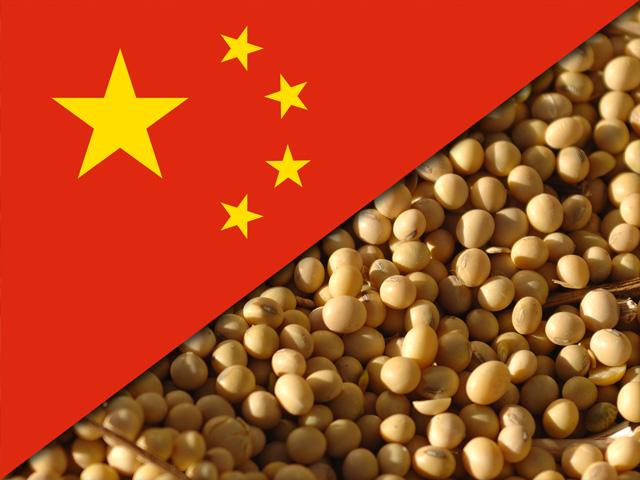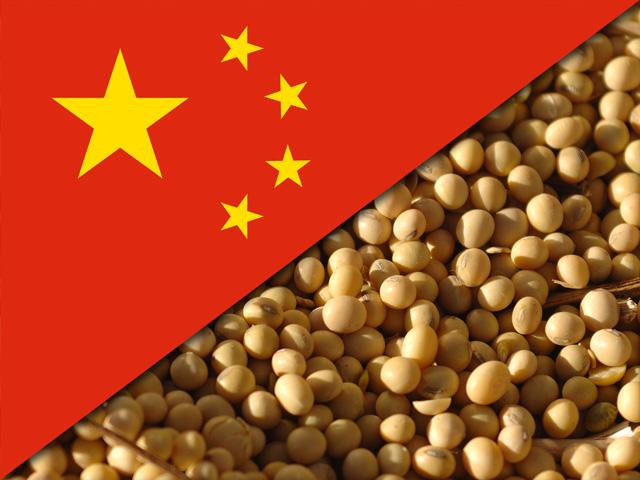Ag Policy Blog
At Ag Export Summit, China Trade Tensions Meet Soybean Realities
China was an obvious topic at the Midwest Agricultural Export Summit this week in Sioux Falls, S.D., as various speakers went back and forth between punitive measures against China, but also wanting the country to restart purchases of high volumes of U.S. soybeans, meat products and other commodities.
"It's so hard to deal with China because they don't have a very good track record of holding up their end of the bargain once you actually sign something," said U.S. Rep. Dusty Johnson, R-S.D.
Johnson noted the rhetoric of at least some hardliners in Congress and other conservatives who talk about "decoupling" the relationship between the U.S. and China. He said that simply isn't practical; but Johnson did talk about the importance of diversifying U.S. exports.
"A complete decoupling of these two economies is not possible and would not be wise, but we do need to de-risk," Johnson said. "None of us should like the fact that 60% of American soybeans go to China."
Part of getting a good deal with China is making sure the U.S. has favorable agreements with as many other countries in the world as possible. "We lose leverage when we are too dependent on China either as a supplier or as a market," he said.
"The importance of these bi-laterals, the agreements the administration is working on is that it gives us a better hand with China," Johnson said.
Rep. Adrian Smith, R-Neb., also noted the difficulties of enforcement and holding China to account. He criticized the Biden administration for the lack of enforcement pressure when China did not meet its obligations under the Phase I agreement.
Chinese agricultural purchases soared in 2021-23, but China still fell short of buying $40 billion a year.
Overall, agriculture actually performed better under the Phase I deal than other sectors. China only bought about 60% of its commitments of other goods, which included falling short in manufacturing and energy sectors, according to Peterson Institute for International Economics (PIIE). Meanwhile China came much closer to hitting the targets for agricultural products, which helped prop up prices for farmers during that stretch.
P[L1] D[0x0] M[300x250] OOP[F] ADUNIT[] T[]
Johnson also noted there is a lack of understanding in Congress about China. He said there have been frequent trips by lawmakers to Taiwan, but there have been very few lawmakers who have made similar trips to China.
"There is lesser understanding of ... individual Chinese businesses and businessmen, and what do they want to see from their economy and from this relationship," he said.
Others at the summit struck a harder tone when it came to China. Nebraska Gov. Jim Pillen, a Republican, said he would like to see policies that end Chinese investment in U.S. agriculture. When asked about Syngenta and Smithfield -- two companies with Chinese ownership -- Pillen said, "Having ownership in our states from foreign adversaries makes absolutely no sense." Asked about how to break up those companies, Pillen suggested the U.S. should "tax the holy hell out of them."
The America First Policy Institute (AFPI), another sponsor of the summit, also laid out its agricultural trade policy agenda. Part of that agenda is to end Chinese land ownership and investment in the U.S. food system.
Kip Tom, an Indiana farmer and former ambassador for the United Nations Agencies for Food and Agriculture, representing the America First Policy Institute, raised concerns over the U.S. relying heavily on China for crop-protection tools. He would like to see those products again produced domestically. "We import nearly 70% of that from China. Is that not a risk?"
Tom also pointed out China's direct foreign investments in Brazil, which "is really strengthening their agriculture sector to the point where they're getting into a whole lot of value-added opportunities."
The Foreign Agricultural Service (FAS) released a report in June laying out the "Soy China" initiative being implemented in Brazil. While Brazil already exports 70% of its soybeans to China, the initiative increases Chinese influence in the Brazilian market and "could pose strategic challenges for U.S. exporters," FAS noted.
But with nearly a 4.3-billion-bushel (bb) soybean crop expected this fall, U.S. farmers would also really like to see China get back into the market. At the moment, it appears China is holding pat.
President Donald Trump earlier this week granted another 90-day extension to reach a deal with China. The Chinese government reciprocated, announcing the suspension of a 24% tariff while this reprieve remains in place, though a 10% tariff remains in place.
With the old-crop year winding down, China has purchased 23.9 million metric tons (mmt) of soybeans -- about 878 million bushels (mb) of the 2024-25 crop. In the 2021-22 crop year -- the peak of the Phase I deal -- China bought 35.36 mmt, or 1.3 bb of beans. At that time, China also had already made commitments to buy nearly 420 mb of the new crop, according to USDA FAS data.
At the moment, at least some analysts suggest the 90-day truce is looking like it could set up for an eventual agreement similar to the Phase I deal. If that were to happen it would be a quick shot in the arm for soybean farmers and producers of other commodities as well.
China still hasn't made any official buys of U.S. soybeans for the upcoming marketing year.
On social media, Trump also called on China to "quadruple" imports of U.S. soybeans.
Jim Sutter, CEO of the U.S. Soybean Export Council (USSEC), said sales to other countries outside of China are growing, but there still remains no substitute for the Chinese market for soybeans. Sutter said he remains optimistic there will be a deal with China but he also pointed out the risks of a 90-day delay.
"We've been saying that we really need to get this in place by harvest," Sutter said. "Ninety days from now we'll be in November and harvest will be almost history."
Johnson pointed out Americans are becoming increasingly populist when it comes to trade, but farmers and people in agriculture need to speak up about the importance of reaching trade deals.
"We cannot consume -- in fuel or food -- all of what this unbelievably productive country is capable of producing," Johnson said.
Chris Clayton can be reached at Chris.Clayton@dtn.com
Follow him on social platform X @ChrisClaytonDTN
(c) Copyright 2025 DTN, LLC. All rights reserved.






Comments
To comment, please Log In or Join our Community .